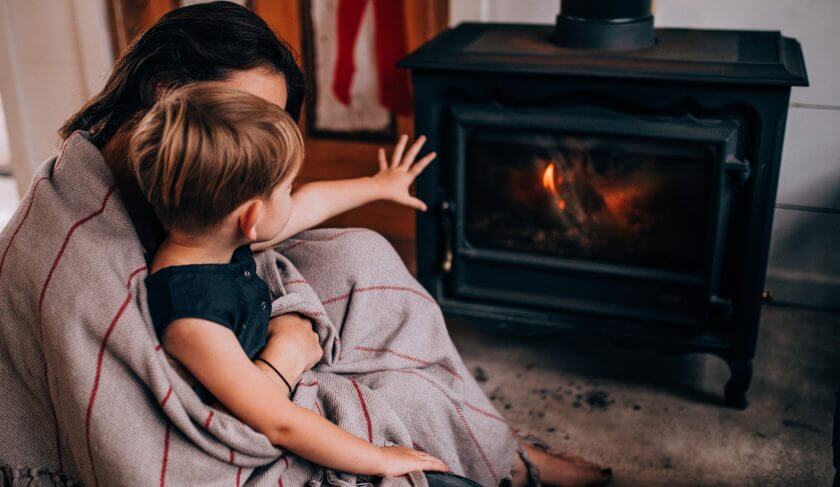In New England, where I live, winter comes quickly. One recent October, I learned that the hard way when a sudden cold snap left me reaching for the thermostat for the first time. I dialed it up but didn’t hear the familiar buzz of the heating system kicking on. I turned it up further. Nothing.
“We must be out of oil,” I told my husband. I called the oil company for an urgent delivery, which added an extra charge on top of the hundreds of dollars it costs us to fill the tank. The oil truck arrived the next day, but after a loud clunk from the basement, I realized we had a bigger problem.
I called a company to come service the boiler, paying yet another emergency call fee. We had to wait a few more days because there was so much demand for service after the first cold snap of the year. Turns out we weren’t the only house that hadn’t planned ahead for winter.
Soon enough we had heat again, but we no longer had an emergency fund.
Last year, I vowed to be more proactive. We had our boiler serviced in August, before the cold-weather rush. We filled the oil tank in September. And although I was confident that our heat would work on the first cold night I was wondering what other winter prep I could have done to save time, money and stress once the temperatures dropped.
It turns out there are lots. From making life more comfortable to preventing big maintenance issues and avoiding emergency call fees, taking time to prep your home for winter can make a big difference. Here’s where to start.
Prepare Your Home for Winter
Take a Look at Your Windows
If you have older, drafty windows you’re not just giving yourself a chill, you’re watching your hard-earned money disappear through the cracks each time you put your heat on. There is a cheaper solution than getting new windows: plastic shrink wrap.
It may sound like a move your grandma would make, but covering windows in shrink wrap can make your home more comfortable and reduce heating costs. There are many kits available at hardware stores that make the process easy and discreet, says Jeffrey Weldler, a home design expert at Vänt Wall Panels.
If you’re hoping to save costs, don’t just think about the rooms you sit in.
“It is especially important to winterize the windows in rooms that are rarely used, such as the basement and spare rooms,” Weldler says.
When you’re thinking to future years, consider whether new doors and windows are in your budget. They can often increase your home’s value and energy-efficient upgrades also have tax benefits, so be sure to look at the big picture when measuring cost.
Clear Your Gutters
Cleaning your gutters is one of the least glamorous house projects there is (the bugs! The ladder!), but having clear gutters can help you avoid major issues this winter.
“It’s a hassle, but clean your gutters before the temperature drops to help prevent ice dams, which form when melted snow pools and refreezes at roof edges and eaves,” says Robert Weitz, founder of RTK Environmental Group. Those ice dams can cause leaky roofs, which are an expensive fix.
Even if you don’t live somewhere with ice and snow, gutter maintenance is still important.
“No matter what the season, gutters filled with heavy leaves can pull away from your house and cause leaks that damage your home and lead to mold growth,” Weitz explains.
Avoid Unwanted Critters
Humans aren’t the only living things looking to get out of the cold when the temperatures drop.
“As the warm weather clears out, the creepy crawlers move in; your home is no longer just keeping you warm—you have guests,” says Gary Parsons, a contractor with Dow Building Solutions. “The best defense is a good offense: turn unwanted critters away before they have the chance to get comfortable.”
To keep critters outside, check your foundation for any cracks or gaps, paying particular attention to the areas around pipes and windows. If you see gaps fill them with caulking. If the space is bigger, cover it with mesh to prevent animals coming inside.
Trimming back tree branches and shrubs around your foundation can also help keep bugs and rodents away.
Protect Your Plumbing
Pipes and plumbing are particularly vulnerable to the effects of cold weather, and repairs can be costly. One way to avoid pipes freezing it to be sure that all your outdoor plumbing is turned off for the winter.
“Shut down and drain all outdoor faucets and piping,” says Ed Del Grande, a master plumber.
If you have pipes that run through non-insulated areas, like the garage or close to the sides of your basement, you may want to consider insulating them to avoid freezes during the colder months.
It’s easy to let home preparation take a backseat to more pressing claims on our time and money, but taking one weekend day to follow these tips could save you hundreds of dollars this winter.








